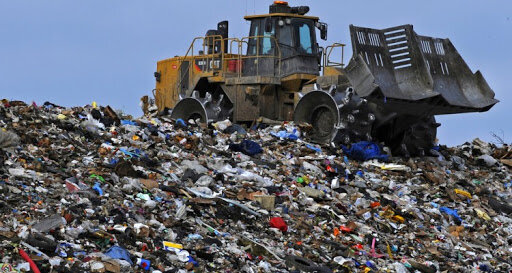Compostable and recyclable material comprises between 70-80% of what goes to the landfill for disposal, meaning that the vast majority of what we throw away has a home either in your curbside recycling cart or with O-Town Compost’s composting program. This is the stuff that should be easy to divert right? Unfortunately, it takes a fair amount of education to teach people that there’s value in material even after it’s been consumed.
Also, not to let the corporate producers off the hook, but there needs to be greater extended producer responsibility (EPR). Some consumer products are just about impossible to recover, based on the way they’re made. DuPoint and Dow Chemical are great examples of Fortune 500 companies that would rather go to great lengths to get their single-use Styrofoam or plastic products labeled “recyclable” than actually shut down production and go a different route. Believe me, I’ve done consulting work for Dow Chemical’s Hefty Energy Bag Program, taking place in Cobb County, GA and Boise, ID, and it’s a perfect example of shucking responsibility and taking the path of least resistance to appear like they care about the environment. Green washing.
Despite the gloomy reality, a change is a comin’ (in the melody of Sam Cooke). The community composting movement is sweeping the country, and O-Town Compost is laying the ground work here in Central Florida to make it convenient for people to do the right thing with their food waste.
Right off the bat, after signing up, O-Town Compost subscribers experience firsthand a lighter and cleaner trash. The 96-gallon cart that most municipalities give their residents becomes WAY more than one needs. Less trash going to the landfill means huge cost savings for our local governments, longer life for our landfill, and a healthier environment. OTC’s subscribers should be rewarded with a reduced price on their trash services bill. For example, many Massachusetts towns have implemented a Pay As You Throw program, incentivizing its residents to waste less. Those who choose not to recycle their food waste, pay more. Basically, the program functions where households pay a variable rate for garbage collection depending on the size of the container they choose with the smaller the size being cheaper.




